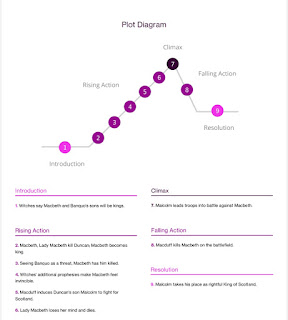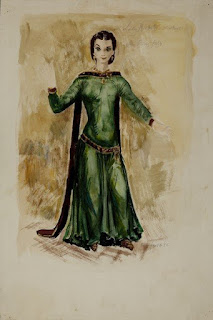Screening Shakespeare's " macbeth "
Shakespeare was born and brought up in Stratford-upon-Avon. At the age of 18, he married Anne Hathaway, with whom he had three children: Susanna, and twins Hamnet and Judith. Between 1585 and 1592, he began a successful career in London as an actor, writer, and part-owner of a playing company called the Lord Chamberlain’s Men, later known as the King’s Men. He appears to have retired to Stratford around 1613 at age 49, where he died three years later. Few records of Shakespeare’s private life survive, and there has been considerable speculation about such matters as his physical appearance, sexuality, religious beliefs, and whether the works attributed to him were written by others.
Shakespeare produced most of his known work between 1589 and 1613. His early plays were mainly comedies and histories and these works remain regarded as some of the best work produced in these genres. He then wrote mainly tragedies until about 1608, including Hamlet, Othello, King Lear, and Macbeth, considered some of the finest works in the English language. In his last phase, he wrote tragicomedies, also known as romances, and collaborated with other playwrights.
Many of his plays were published in editions of varying quality and accuracy during his lifetime. In 1623, John Heminges andHenry Condell, two friends and fellow actors of Shakespeare, published the First Folio, a collected edition of his dramatic works that included all but two of the plays now recognised as Shakespeare’s. It was prefaced with a poem by Ben Jonson, in which Shakespeare is hailed, presciently, as “not of an age, but for all time”. In the 20th and 21st centuries, his work has been repeatedly adopted and rediscovered by new movements in scholarship and performance. His plays remain highly popular today and are constantly studied, performed, and reinterpreted in diverse cultural and political contexts throughout the world.
Macbeth (c.1005 - 1057)
Macbeth was a king of the Scots whose rule was marked by efficient government and the promotion of Christianity, but who is best known as the murderer and usurper in William Shakespeare's tragedy.
Shakespeare's Macbeth bears little resemblance to the real 11th century Scottish king.
Mac Bethad mac Findláich, known in English as Macbeth, was born in around 1005. His father was Finlay, Mormaer of Moray, and his mother may have been Donada, second daughter of Malcolm II. A 'mormaer' was literally a high steward of one of the ancient Celtic provinces of Scotland, but in Latin documents the word is usually translated as 'comes', which means earl.
In August 1040, he killed the ruling king, Duncan I, in battle near Elgin, Morayshire. Macbeth became king. His marriage to Kenneth III's granddaughter Gruoch strengthened his claim to the throne. In 1045, Macbeth defeated and killed Duncan I's father Crinan at Dunkeld.
For 14 years, Macbeth seems to have ruled equably, imposing law and order and encouraging Christianity. In 1050, he is known to have travelled to Rome for a papal jubilee. He was also a brave leader and made successful forays over the border into Northumbria, England.
In 1054, Macbeth was challenged by Siward, Earl of Northumbria, who was attempting to return Duncan's son Malcolm Canmore, who was his nephew, to the throne. In August 1057, Macbeth was killed at the Battle of Lumphanan in Aberdeenshire by Malcolm Canmore (later Malcolm III).
Screening of macbeth :
Three witches tell the Scottish general Macbeth that he will be King of Scotland. Encouraged by his wife, Macbeth kills the king, becomes the new king, and kills more people out of paranoia. Civil war erupts to overthrow Macbeth, resulting in more death.
Act I
On a bleak Scottish moorland, Macbeth and Banquo, two of King Duncan's generals, discover three strange women (witches). The witches prophesy that Macbeth will be promoted twice: to Thane of Cawdor (a rank of the aristocracy bestowed by grateful kings) and King of Scotland. Banquo's descendants will be kings, but Banquo isn't promised any kingdom himself. The generals want to hear more, but the "weird sisters" disappear.
Soon afterwards, King Duncan names Macbeth Thane of Cawdor as a reward for his success in the recent battles. The promotion seems to support the prophecy. The King then proposes to make a brief visit that night to Macbeth's castle at Inverness. Lady Macbeth receives news from her husband about the prophecy and his new title. She vows to help him become king by whatever means are necessary











Comments
Post a Comment